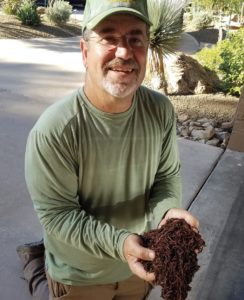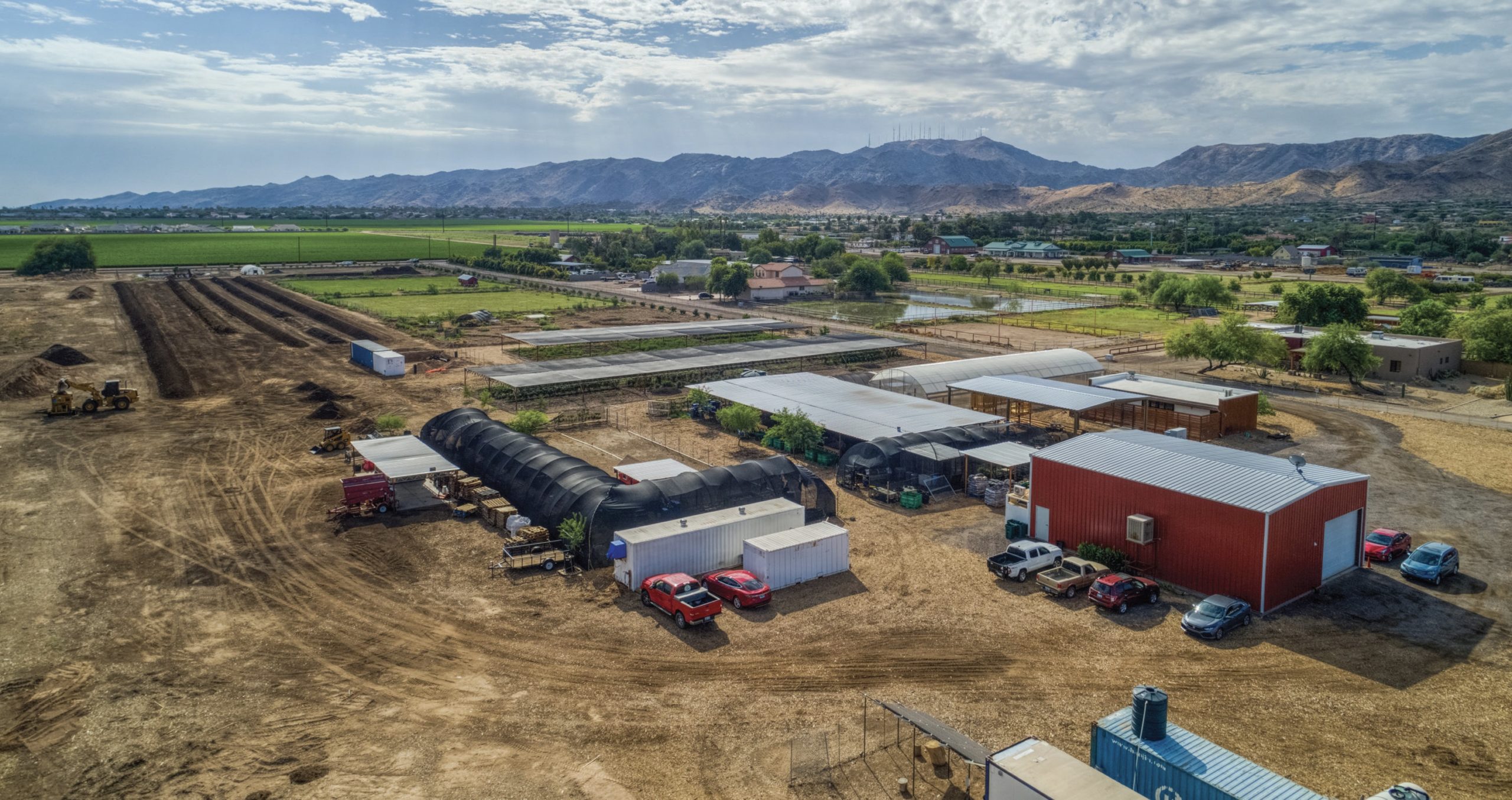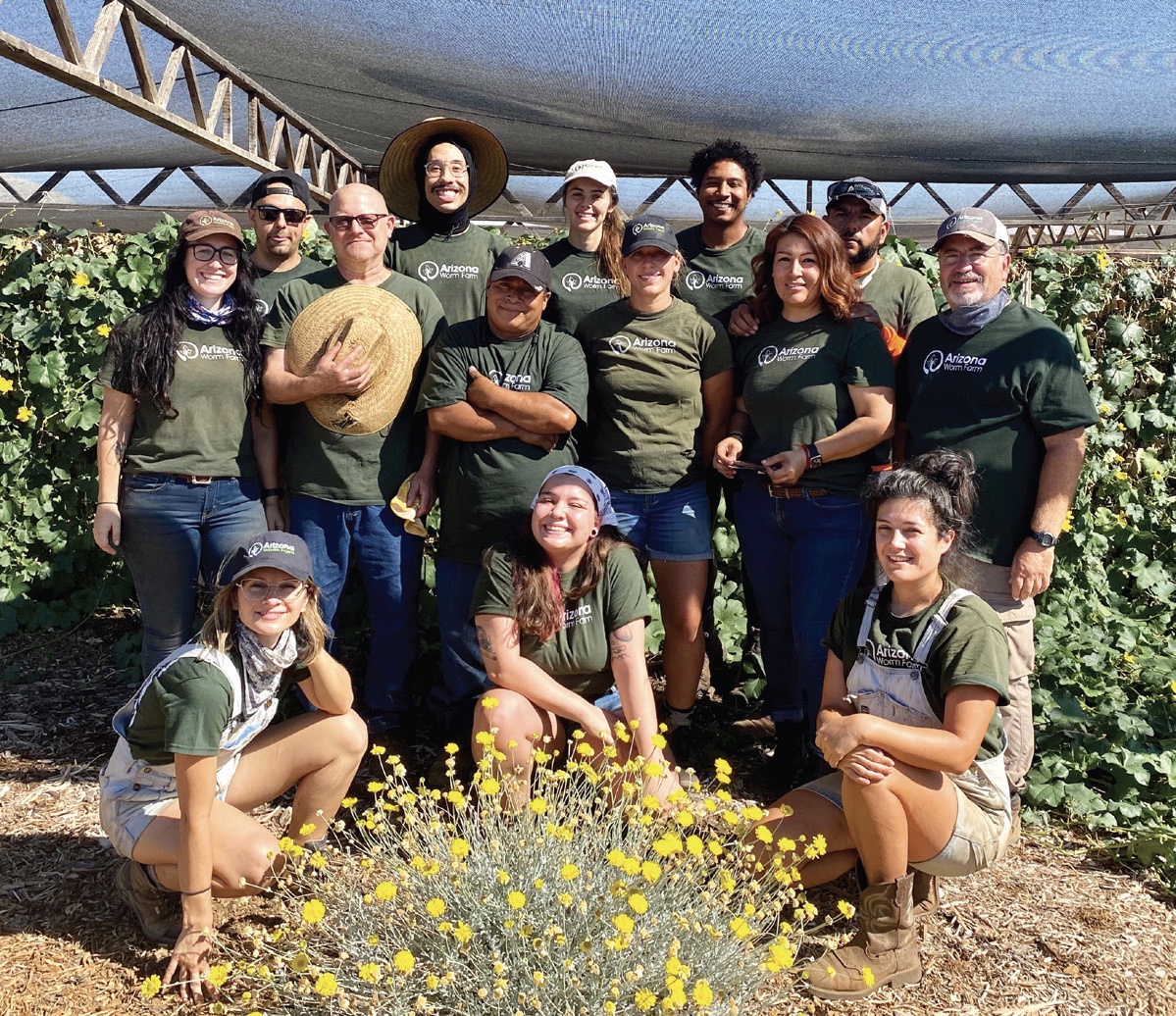
Dec 16, 2021
For Arizona worm farmer Zach Brooks, business is booming and competition is welcome
This livestock won’t require a roundup.
They won’t run away – wiggle or dig is the best they can do.
And yet, the waste produced by earthworms is valuable for soil building, and the earthworms themselves can be bred for sale.
Zach Brooks, owner of Arizona Worm Farm in Phoenix, Arizona, said the operations are in many ways similar to other agricultural operations.
“We worry about feed, temperatures, water quality and predators,” he said. “It is hard work and has weather, market and disease issues that have to be managed.”
Brooks, who is hosting a conference on worm farming in January, said that a new worm farmer could start a small manual operation that can be done in as small an area as 8 x 8 feet with $200 of capital. Larger operations require space and equipment, but “an existing composting operation is the perfect launching point for a parallel worm composting operation.”
Organic Grower recently caught up to Brooks for a question-and-answer session:
Organic Grower: Tell me a bit about yourself. How did you get into worm farming?

Photo: Arizona Worm Farm
Zach Brooks: I have a bachelor’s and master’s degree from Arizona State University (ASU). I went to work as a business consultant and spent 30 years as a consultant and partner at a global consulting firm. I semi-retired in 2002 and did some part-time work. I went back to ASU to get a second master’s in sustainability, but in 2016, instead of finishing, I decided to start an off-the-grid, zero-waste farm.
I originally planned to sell the fruits and vegetables grown on the farm to pay for its labor.
Worms were an integral part of our zero-waste strategy from the beginning because they could convert garbage into fertilizer and healthy soil and provide a protein source for our hens. So, I started with worm farming.
It turns out that worms, worm castings and compost, which we make here for our own use on our organic farm, are a great revenue source for us. We initially thought we were going to have a farm where we were going to sell fruits and vegetables to pay for the labor that we needed. That’s crazy hard to do in the United States on a 10-acre piece of land like we have, and so we pivoted to worms for our revenue. Our ultimate goal here is to feed and clothe 10 families on 10 acres using just sunshine, rainwater and other people’s garbage, and worms are a critical element to making that happen.
OG: Tell me a bit about your operation today. What equipment do you need? How many acres or employees do you have? Describe the operations.
ZB: We have 15 employees on our 10-acre farm. We have separate teams responsible for breeding worms, making vermicompost and castings, growing fruits and vegetables, and making compost (regular hot compost).
We take in about 320 cubic yards of waste every week (vegetable and fruit waste, manures and ground landscape waste) and we compost it, feed it to our worms and black soldier fly larvae and chickens.
We have a fairly extensive set of composting, screening and harvesting equipment here at the farm. We have three front loaders of various sizes, two dump trucks, two tractors and compost turners and small trommels and screens. We bag our own products, so we also have mixing and bagging machines.
People generally think of worm farming as a very low “cost-to-start” business, and that is true if it’s just a sideline or a supplemental business. But, on a commercial scale, there are lots of capital costs.

OG: In the news release about the conference you’re involved with, you mentioned how the demand for worms is way up. How much has it gone up and to what would you attribute this jump?
ZB: Climate changes and microbe awareness are the two big drivers of the price increases.
First, we have seen that the largest worm farms have been badly hurt by increasing temperatures and storms that hit the Gulf Coast over the last year. There are simply fewer worms available for sale this year.
Second, we have seen an explosion in demand as backyard gardeners and organic gardeners have watched how easy it is to have a successful garden if you use no-till, organic methods using worms. Movies like “The Biggest Little Farm” have highlighted the benefits of worms and worm castings in sustainable farming. Companies like Subpod and their knockoffs – which use worms as an integral part of their processes – have increased their marketing efforts. The combination of these factors has sent demand skyrocketing.
We have seen a 100% increase in wholesale prices for worms.

OG: A lot of our readers are involved in composting efforts. Do you get a lot of requests for worms and worm castings from farmers and composting companies?
ZB: Here in Arizona, our principal agricultural crops are four Cs: citrus, cotton, cattle and now cannabis, plus lettuce (in the Western part of the state). All but cannabis are grown on large, factory farms that have, so far, shown very little interest in true organic no-till farming. We have provided lots of worm castings and our active worm castings teas to local cannabis growers with great success.
We sell between 50 and 100 pounds of worms and more than 3,000 pounds of castings every week, mostly to backyard gardeners and very small market farms.
Anyone making compost should look into adding a worm product line. While compost sells between $20 and $50 a cubic yard, vermicompost sells for five times that and castings are commanding $500 a yard. Converting some of an operation’s existing compost operations to vermicompost is generally relatively inexpensive and can provide tremendous returns. It does require management of a worm “herd,” but they are easier and less demanding than most other livestock.
OG: Describe the process of vermicomposting. What are some likely inputs, and what sorts of worms would you use?
ZB: We use red wigglers because they are hardy, easy to breed and live well in our temperature extremes. They thrive in temperatures as low as 40 degrees and can live fine in temperatures above 90. Our bed temperatures rarely go outside those parameters even when ambient temperatures go over 120 degrees.
Worms need food weekly. We feed ours pre-composted food waste and horse manure.
We have a specific process for making castings that uses long windrows and specific feeding and harvesting schedules.
OG: Worm castings are a prized part of soil building. How would you describe soil health benefits of worm castings?
ZB: I have taken multiple semester-long master’s level college courses to fully understand the science of perfect soils. The answer to that question can be extremely complex, but, put simply, the byproduct of worms – either live worms or worm castings – is lots of good microbes. The combination of organic material and microbes convert what is in the soil into what the plants need at the point in time that they need them.
The soils at the Arizona Worm Farm are hugely microbially active, so we get a very rich organic soil. This is like having an intravenous shot of perfect food for plants at the exact time they need them. The plants tell the microbes what nutrition the plants require (through exudates from their roots), and the microbes in turn supply what the plant needs. Microbes help the plants extend their roots to make better use of water and nutrition and store water for later use.
The difference in the quality of this soil is tangible. Our farmland is richer and able to retain water much better than other land in the area. This means less water is required to maintain operations, which further helps conserve resources.
OG: Tell me a bit about your conference coming up in the new year.
ZB: The Worm Business Conference will take place Jan. 13 and 14, 2022 in Phoenix, and 40 farms are already committed to participate.
We’re going to talk about how to be more efficient and effective, how to make more money using worms, and how to reduce the amount of oil-based and chemical-based fertilizers that are used for agriculture.
Participants will get coaching, hands on training, and business advice and recommendations from leading experts in the U.S. worm farming community. They will learn about starting a worm farm, worm farming for profit and tips for starting a worm farm business.
It will also be an opportunity to see successful worm breeding in operation and watch worm castings production using wedge processes. Participants will see screening, bagging and mixing in both low- and medium-volume environments.
The conference is designed to help start, expand or perfect a worm business. Details can be found at www.wormbusinessconference.com.









